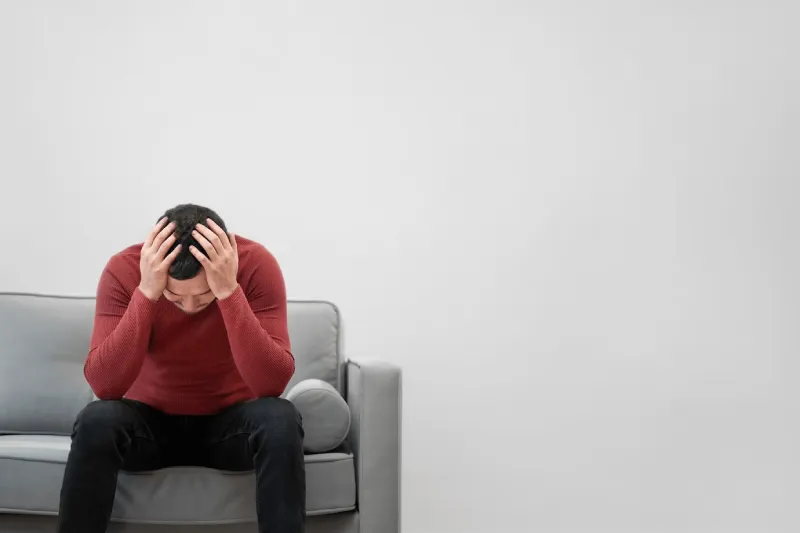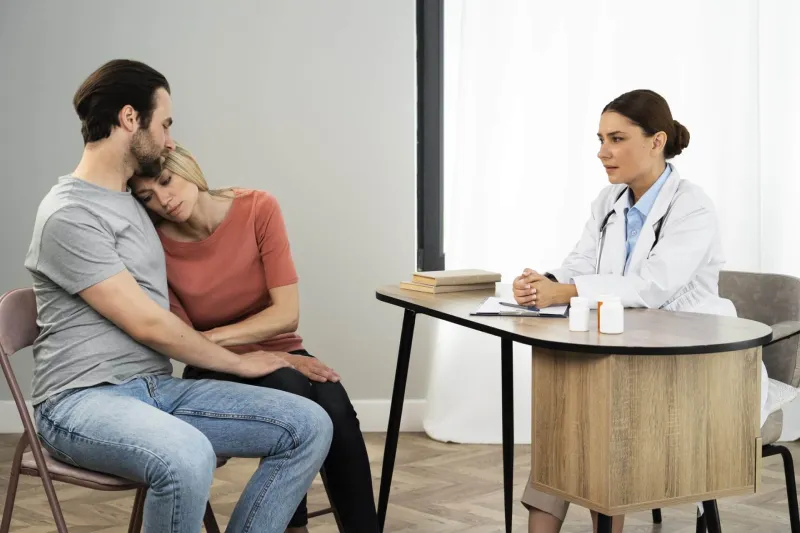Mental health affects us all, and anxiety can be one of the most debilitating conditions. Anxiety disorders are very common in our society, with over 18% of adults experiencing uneasiness, stress, fearfulness, and panic attacks. It’s important to remember that various treatments are available for those suffering, and finding the right anxiety treatment can make a huge difference in your quality of life. In this comprehensive guide, we will explore different types of anxiety treatments and discuss how to find the best treatment for you.
Understanding Anxiety
Anxiety can manifest itself in many ways – some people might experience physical symptoms such as tightness in their chest or heart racing, fatigue, sleep disturbances, and more. In contrast, others may have more emotional responses like fear or panic attacks.
Whatever form it takes, it’s important to recognize when your feelings become overwhelming so you can take steps toward getting help. Different therapy, medications, lifestyle changes, and self-care techniques are options available to treat anxiety; however, addressing individual needs is key to success with treatment plans.
Anxiety can have both psychological and physiological causes, including genetics, environmental factors (such as traumatic events), lifestyle choices (e.g., lack of exercise), and even medical conditions (such as thyroid disorders). Therefore, an accurate diagnosis from a mental health specialist is essential to receive proper treatment for managing or relieving these symptoms.
Types Of Anxiety Treatments
Generally speaking, there are two main types of treatment – medication options and psychotherapeutic approaches. Each type has its benefits and limitations when considering which option best suits an individual’s needs.
-
- Medication-Options – Medications can relieve certain mental health conditions, including anxiety disorders. However, they do not address the underlying cause of the disorder or help someone learn how to manage their condition without drugs. Common medications used for treating anxiety include antidepressants, anti-anxiety drugs, beta-blockers, and antipsychotic medications.
- Psychotherapeutic Approaches – Psychotherapy involves talking with a trained therapist to understand better one’s thoughts and behaviors related to anxiety and learning coping strategies and relaxation techniques. Anxiety therapy typically includes cognitive therapy, exposure therapy, dialectical behavior therapy (DBT), acceptance & commitment therapy (ACT), and interpersonal therapy (IPT).
These methods often involve lifestyle changes such as improved sleep habits, physical activity, diet modifications, stress reduction techniques like yoga or mindfulness meditation, social support network formation, and other activities that may increase overall emotional well-being. Here is a list summarizing some key elements of these different therapies:
-
- Cognitive Therapy – focuses on challenging negative beliefs about oneself or situations to modify maladaptive thinking patterns;
- Exposure Therapy – gradually exposing oneself to feared objects/situations until fear dissipates;
- Dialectical Behavior Therapy – teaches skills needed to cope with difficult emotions while improving interpersonal relationships;
- Acceptance & Commitment Therapy – helps individuals focus on values and take committed action towards meaningful goals despite unavoidable difficulties;
- Interpersonal Therapy – identifies problems arising from communication between people and works toward finding solutions that improve relationships.
How To Choose A Treatment
Choosing an anxiety treatment plan can be daunting, but it doesn’t have to be. It’s like taking a trip on the road of life; you don’t know exactly what lies ahead and where you’ll end up. At sunshine Infustion, we want to help you find the best anxiety treatment.
There are several different types of treatments for managing symptoms related to anxiety disorders. These include cognitive-behavioral therapy (CBT), psychotherapy, medications, relaxation techniques, and lifestyle changes. Each has its advantages and disadvantages depending on individual needs and preferences.
After considering all the potential options, it’s important to create a personalized treatment plan with your healthcare provider or therapist that fits your specific requirements and goals. This should involve discussing your current symptoms and past experiences with similar issues to develop an effective strategy tailored just for you.
Your chosen professional will also guide the process of finding the right type of care for you – whether it involves medication, talk therapy sessions, or other methods – so you can manage your condition effectively in the long run.
Choosing Between Medication And Therapy
There are several factors to consider when considering whether to pursue a therapeutic approach or take medications for anxiety. The severity of the condition typically plays a role in determining the best course of action – medication may be necessary if symptoms become unmanageable without intervention.
Additionally, lifestyle preferences also come into play when choosing between medication and therapy; individuals who prefer a more holistic approach will likely benefit from psychotherapy alone, while those more comfortable with taking pharmaceuticals may opt for medications alongside their counseling sessions.
Another key factor when selecting an anxiety treatment plan is how well each option works together. A combination of the two may be beneficial in some cases due to their synergistic effects on reducing distress levels and improving overall functioning. However, discussing any potential drug interactions with a medical professional before beginning either treatment is important. Ultimately, finding what has been proven effective through research and personal experience will help guide your decision-making process as you select the right anxiety treatment plan for yourself or someone else.
Self-help strategies can complement traditional treatments such as medications and therapies by providing additional tools and techniques to manage stress better over time.

Self-Help Strategies
When it comes to managing anxiety, many self-help strategies can be employed. Understanding the source of one’s anxiety is an important step in managing it successfully. In addition, self-help therapies and relaxation techniques can benefit those with clinical or nonclinical anxiety levels.
|
Self-Help Strategies |
Benefits |
|
Anxiety Management |
Reduces intensity |
|
Relaxation Techniques |
Promotes relaxation & peace of mind |
|
Positive Thinking |
Increases positive emotions |
These approaches can help individuals develop healthier ways of responding to stressors, identify and address destructive thought patterns, and practice calming activities such as mindfulness meditation and yoga. Additionally, engaging in physical activity has been shown to reduce symptoms associated with both general and specific forms of anxiety. Combining these methods proves most effective at helping individuals cope with their anxious feelings.
Conclusion
The journey to finding the right anxiety treatment is a complex one. It requires careful consideration, research, and understanding of your own needs. It’s important to remember that there isn’t just one type of treatment for every individual; instead, it’s about determining which combination works best for you. This could include medication, therapy, or self-help strategies in conjunction with each other.
At Sunshine Infusion, we help people reduce anxiety symptoms through professional mental health treatment. Contact us today.




